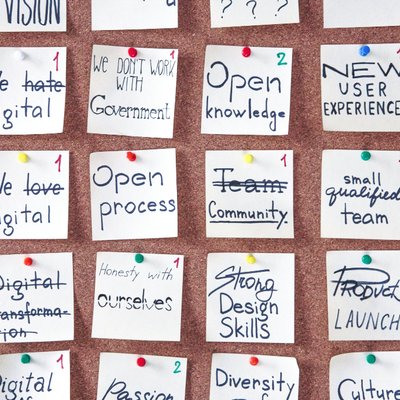AI Layers in Education: Transforming Learning Through Purpose-Built Technology
As artificial intelligence matures, it’s transforming education through a unique and strategic concept: the AI tech stack or, more aptly, the "AI learning layer."
Jan. 20, 2025

In 2025, EdTech is set to reach new heights, transforming how learners and educators engage with content and each other.
This evolution is driven by a focus on personalized experiences, well-being, and sustainability, along with a greater emphasis on practical applications of emerging technologies. Below, we explore the trends that will define EdTech in 2025.
While personalization has been a buzzword in EdTech for years, 2025 will see it expand beyond academic performance to encompass emotional and mental well-being. Platforms will integrate tools to monitor student engagement, stress levels, and overall satisfaction, offering tailored support to improve learning outcomes.
Virtual Reality (VR) and Augmented Reality (AR) will move from being experimental tools to essential components of education. These technologies will offer practical, hands-on experiences that are otherwise difficult to achieve in traditional settings.
EdTech companies will increasingly prioritize sustainability, embedding eco-friendly practices into their operations and educational content. This shift aligns with global efforts to combat climate change and promote responsible consumption.

Employers are seeking candidates with strong soft skills, such as communication, adaptability, and critical thinking. EdTech solutions in 2025 will address this demand by offering courses and activities that help learners develop these essential competencies.
Gamification will evolve from basic rewards systems to comprehensive learning journeys that engage users at every step. These journeys will be designed to keep learners motivated and help them achieve long-term educational goals.
Hybrid learning, combining online and in-person education, will solidify its position as the standard model. Institutions will offer flexible schedules, allowing students to switch between formats depending on their preferences and circumstances.
With the growing recognition of mental health’s impact on academic success, EdTech companies will introduce more tools to support students’ psychological well-being.

Educational institutions will rely more heavily on data analytics to improve learning experiences. Insights from student performance, engagement, and feedback will inform curriculum updates and teaching methods.
EdTech in 2025 will prioritize inclusivity, ensuring that all learners, regardless of their backgrounds or abilities, have access to quality education. This includes designing content and interfaces that accommodate diverse needs.
As the job market evolves, continuous learning will become a necessity. EdTech platforms will offer more opportunities for lifelong learning, helping individuals stay competitive and adapt to new roles.
EdTech in 2025 will be characterized by a holistic approach to education, addressing not just academic achievement but also emotional well-being, social responsibility, and practical skills development. By focusing on inclusivity, sustainability, and immersive experiences, the sector is poised to redefine how we learn and grow in an ever-changing world.